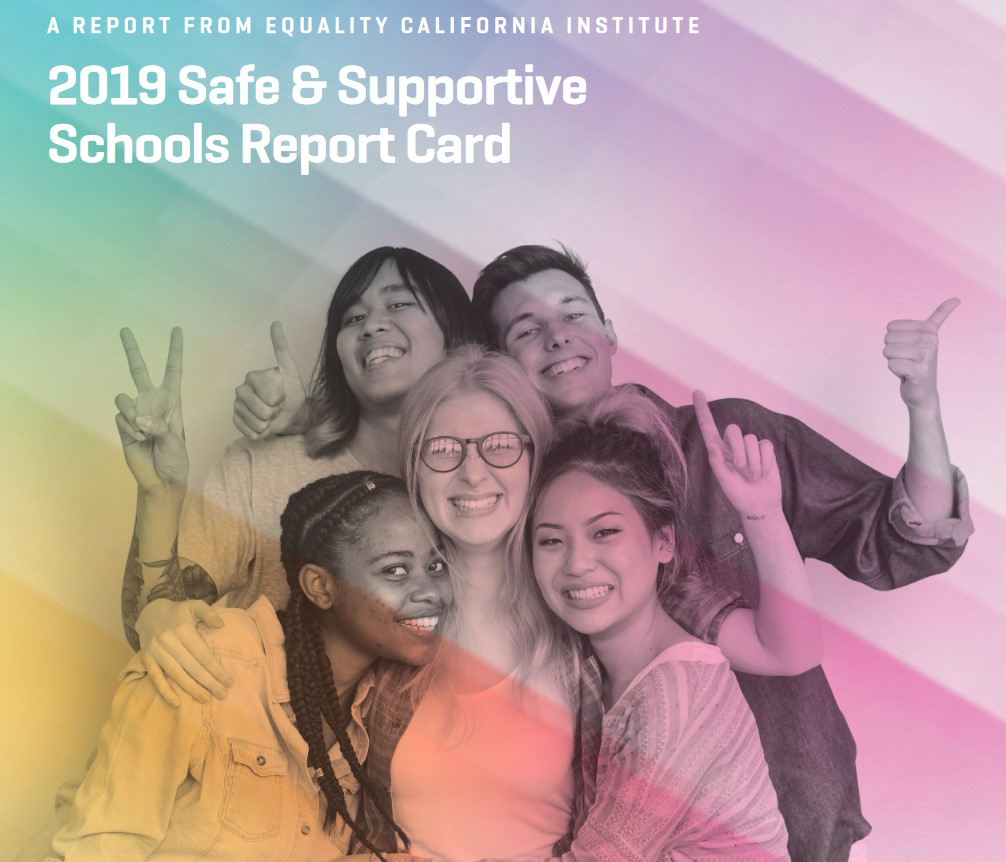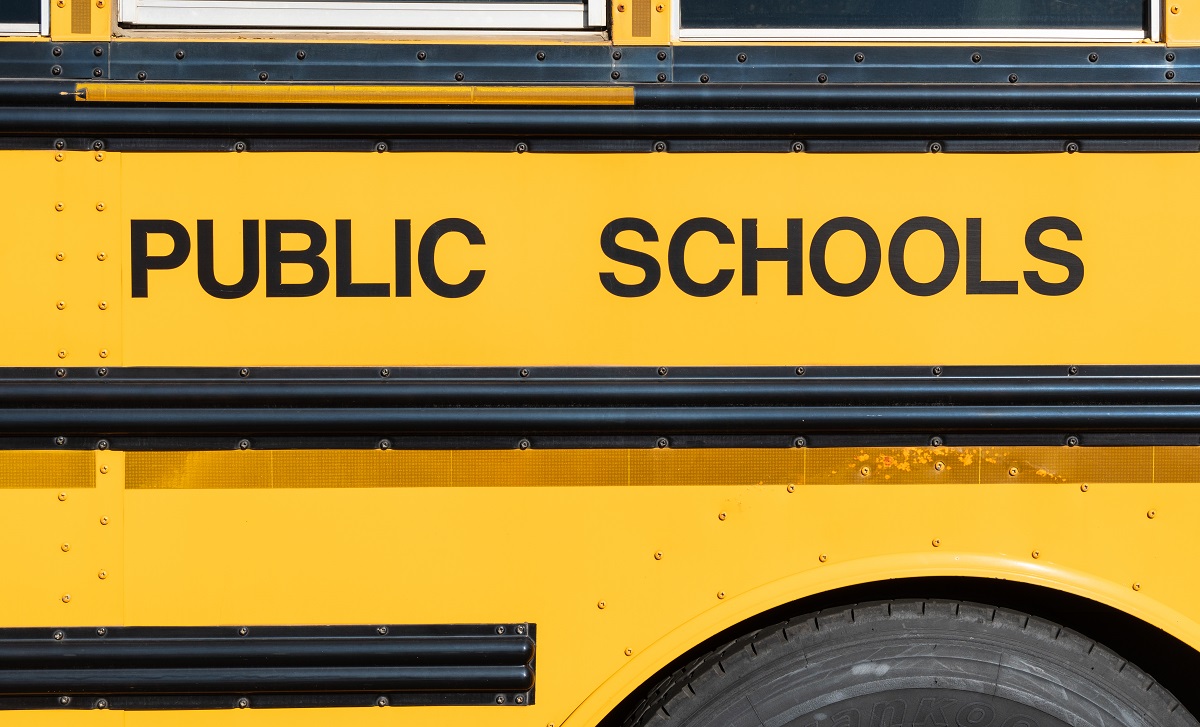A first-of-its-kind report card finds that many of California’s unified school districts must improve their implementation of LGBTQ-inclusive programs, policies and curriculum. The Equality California Institute surveyed and assessed 130 unified districts across the state to produce the 2019 Safe & Supportive Schools Report Card.
While the institute reports that great gains and protections have been achieved for California’s LGBTQ students through the Legislature in recent years, policy implementation and management greatly varies at the district governing board level.
Some districts have succeeded in providing safe and supportive environments for all students, while others have faced challenges. Districts notably self-reported shortcomings in the areas of cultural competency training, support for transgender and gender-nonconforming youths, and inclusive curriculum.
“Legal requirements are merely a foundation upon which to build comprehensive policies that protect and nurture LGBTQ students,” the report reads. “Many school districts lack the resources to implement these laws, face hostile local social climates that impede implementation or lack awareness regarding the laws’ requirements and the best way to meet them.”
Equality California sent the survey to all 343 unified school districts in California in November 2017, but nearly 62 percent of them did not respond. The survey focused on five main topics related to the health and well-being of LGBTQ students and school staff: school climate, cultural competency training, transgender and gender-nonconforming students, curriculum and suicide prevention.
The responses were then used to place each district into one of three tiers, reflecting how much progress districts have made in fostering a safe and supportive school climate for LGBTQ students. Twenty-two districts made the top tier, reserved for those reporting more extensive programs and policies; a majority of districts, 80, were classified in the middle tier, indicating some basic or initial steps have been taken; and 28 districts have made some steps but lack resources, understanding or commitment to fully implement programs and policies. (District summaries showing more detail begin on page 45 of the report).
Among the key general survey findings:
- All 130 districts had an existing policy prohibiting discrimination, harassment, intimidation and bullying against students
- 82 districts reported they regularly collect data regarding student sexual orientation, gender expression and gender identity
- 46 districts reported that they do not offer training to employees that even generally covers diversity, anti-bias, cultural competency, and/or equity and inclusion
- 54 districts reported having adopted a policy that requires teachers and staff to refer to transgender and gender-nonconforming students according to the student’s asserted name and gender identity
- 65 districts reported that the contributions of LGBTQ individuals are taught in government, history and/or social studies classes
- 118 districts reported that they have a policy on pupil suicide prevention in grades 7 to 12, and 94 districts indicated that this policy specifically addresses the needs of LGBTQ youth in some way
The findings support many of the issues highlighted in a groundbreaking Human Rights Campaign report in which CSBA was a partner. The report reveals that many of California’s LGBTQ students are not receiving adequate support and offers recommendations for board members to better serve those youths.
“As policymakers, school board members can set the standard for school culture and lay the groundwork for environments where LGBTQ students feel accepted and empowered to learn,” CSBA CEO & Executive Director Vernon M. Billy said upon the release of the HRC report. “The report highlights an important topic — the disproportionate risks to physical, social, and emotional health suffered by LGBTQ students — that schools can address through research-based policies and practices.”
The Human Rights Campaign’s California LGTBQ Youth Report found that only 32 percent of California’s LGTBQ students feel comfortable being their authentic selves on campus. Acknowledging those types of challenges, State Superintendent of Public Instruction Tony Thurmond wrote a letter included in Equality California’s report commending the work and asking educators, students, parents and community leaders to help make schools more inclusive and supportive for LGBTQ students.
“We need to empower teachers and school staff by giving them the tools and training necessary to support their LGBTQ students,” Thurmond wrote. “We must be proactive in adopting and implementing policies that make our schools safer for all students. And we need to ensure that the curriculum taught in our schools is inclusive of the LGBTQ community.”
CSBA resources:
- Updated Legal Guidance: Protecting Transgender and Gender Nonconforming Students Against Discrimination (March 2017)
- CSBA Governance and Policy Resources — Bullying
Other resources:
- California Safe Schools Coalition — This broad coalition has published a variety of research briefs that focus on school safety issues for LGBT students.
- Gay Lesbian & Straight Education Network (GLSEN) — From research reports to professional development and lesson plans, GLSEN offers an array of resources centered around LGBT issues in K-12 education.
- Library: LGBT Youth & Schools Resources and Links — American Civil Liberties Union (ACLU)
- Best Practices: Creating an LGBT-inclusive School Climate – Teaching Tolerance: A Project of the Southern Poverty Law Center





